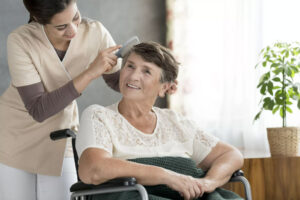 As individuals age, changes in hair texture, color, and density are common occurrences. Understanding the aging process and addressing potential hair disorders is essential for maintaining optimal hair health in elderly patients.
As individuals age, changes in hair texture, color, and density are common occurrences. Understanding the aging process and addressing potential hair disorders is essential for maintaining optimal hair health in elderly patients.
Aging Process and Its Impact on Hair
The aging process affects hair in various ways. Hair strands tend to become finer, lose pigment, and may grow at a slower rate due to changes in follicle function and decreased melanin production.
Common Hair Disorders in the Elderly
Elderly individuals often experience hair disorders like alopecia (hair loss), thinning, and graying. These issues can significantly impact self-esteem and confidence levels.
Managing Hair Aging and Disorders
Managing hair aging and disorders involves various approaches. Seeking medical advice, using prescribed medications, or opting for treatments like minoxidil can help address hair loss. Embracing hairstyles that complement thinning hair or using hair products designed for elderly hair care can also be beneficial.
Foods and Nutrients for Hair Health
A well-balanced diet rich in vitamins, minerals (like biotin and zinc), and proteins is crucial for maintaining healthy hair. Foods such as eggs, nuts, fish, leafy greens, and fruits support hair health by providing essential nutrients.
Tips for Maintaining a Healthy Scalp in the Elderly
Regular scalp care is vital for overall hair health. Gentle cleansing with mild shampoos, avoiding excessive heat styling, protecting hair from UV exposure, and keeping the scalp moisturized can promote a healthier scalp environment.
Nurturing Healthy Hair and Scalp in Aging Individuals
Understanding the impact of aging on hair and recognizing common hair disorders in elderly patients is fundamental for proactive care. Implementing measures such as a nutrient-rich diet, proper scalp care, and seeking professional guidance can significantly contribute to maintaining healthy hair and scalp in older individuals. By adopting these strategies, elderly patients can embrace their hair’s natural changes while promoting overall hair health and well-being.
